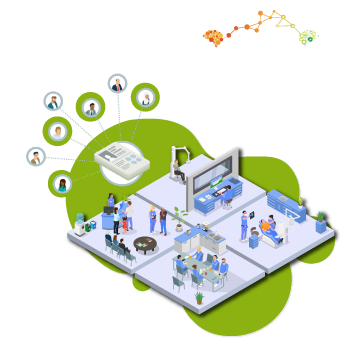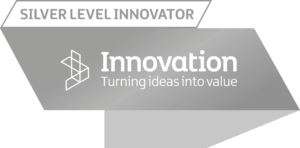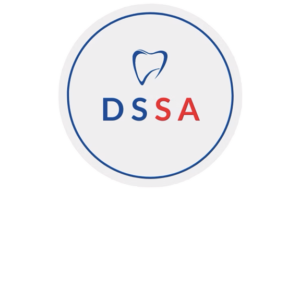An Enlightening Approach to Dental Software with AeronaDental and Psynergy
Dentistry is widely recognised as one of the most demanding and challenging professions. The stress, anxiety, and potential burnout associated with the job are significant issues that affect not only the professional life of dental practitioners but also their personal lives. The well-being of dental professionals and their teams directly influences the quality of care provided to patients, a concern that has only grown since the COVID-19 pandemic. Many dental professionals have reported feeling less clinically confident, facing greater challenges in making clinical decisions, and struggling with forming diagnoses.
Understanding and Awareness
To effectively address mental health and well-being in your practice, it’s essential to first understand what these terms mean. The World Health Organisation (WHO) defines mental health as “a state of mental and psychological well-being in which every individual realizes his or her own potential, can cope with the normal stresses of life, can work productively and fruitfully, and is able to contribute to their community.” According to Deloitte, mental health is also influenced by a range of “socio-economic, biological, and environmental factors.”
Well-being, as Deloitte further suggests, can be described as “feeling good and functioning well,” encompassing each individual’s experience of their life and how they compare their circumstances with societal norms and values. It can be both subjective and objective. Understanding these concepts is the first step in providing appropriate guidance on improving mental health and well-being. Raising awareness and openly communicating about mental health in the workplace is crucial for fostering a supportive environment.
The Costs of Ignoring Mental Health
When mental health and well-being are not prioritised, dental practices incur significant costs. These costs manifest in various ways, including staff turnover, absenteeism, and presenteeism (where employees come to work with poor mental health and perform at reduced productivity). The Centre for Mental Health reported that mental ill health cost the UK economy £110 billion in 2022, with expenses related to absenteeism, presenteeism, and staff turnover.
In the dental industry specifically, a study by the National Library of Medicine found that 40% of dentists in a British Dental Association survey anticipated changing careers or retiring early within the next 12 months. Similarly, one-third of UK dental nurses plan to leave the profession in the next two years, posing a significant threat to the dental workforce. To improve mental well-being at the practice level, it’s essential to focus on workplace well-being, utilising frameworks like Psynergy to protect and support dental professionals, their teams, and the communities they serve.
A Digital Toolkit for Mental Health
Digital solutions are increasingly available to address the practical challenges faced by dental professionals daily. Using AeronaDental as your dental practice management software (DPMS) simplifies the day-to-day operations of dental practices, and its recent integration with Psynergy allows dental professionals to implement a comprehensive mental health strategy within their practice.
Psynergy offers customised individual accounts, tailored questionnaires, anonymous results, and the ability to generate both quantitative and qualitative reports using AI. These features, combined with actionable resources such as articles, videos, and guides, make Psynergy a valuable addition to any dental practice. Psynergy helps normalise conversations about mental health and well-being, fostering a culture where it is okay to seek help and support.
How Psynergy Works
Psynergy operates through a three-step process when integrated with dental practices:
- Measure: Dental practitioners invite their team to onboard the Psynergy platform.
- Action: Team members log in at their convenience to complete their mental health programme, instilling their goals and objectives, with all of this helping to provide valuable insights through expansive results.
- Change: Based on the findings, practices can implement changes that support long-term organisational change and create an inclusive mental health culture.
What People Say about Psynergy
Claire, Dental Nurse: “This is the first time in my 34 years of working in dentistry that anyone has approached our mental health. It was very useful to feel like we have a say about our working lives and that someone was going to listen and for us to talk as a team. Since we have had our feedback session, I feel like we have been talking to each other and listening more.”
Natasha, Dentist: “I really hope this becomes a regular thing, as it gives quieter people like me a chance to voice our opinions about the workplace.”
Emma, Head Receptionist: “If given the opportunity to carry on using Psynergy, I think there could be a big positive impact on staff morale as they will then have a secure platform where they feel safe to bring up issues in a mature environment.”
CQC Inspection Report: “Staff were encouraged to offer suggestions for improvements to the service and said these were listened to and acted on where appropriate. The provider had implemented a system (Psynergy) for staff to anonymously feedback about their wellbeing. The provider could monitor insights relating to mental health and wellbeing. This enabled them to provide early-stage support where appropriate. Staff confirmed they had benefitted from this system, and this had also encouraged a culture of openness to speak about mental health.”
Going the Extra Mile
Implementing Psynergy in your practice shows staff members that they are valued and heard, even anonymously. This leads to increased team morale and productivity, which extends to patient care. Patients will benefit from a more engaged and positive staff, resulting in higher patient retention and acquisition rates.
Staff Progression and Development
Psynergy’s programs can help identify areas where staff members need improvement. Additional training on the current DPMS, such as AeronaDental, may boost confidence and efficiency. By redistributing tasks according to staff strengths, managers can reduce workloads and allow team members to focus on areas where they excel, leading to professional fulfilment and enhanced performance.
The Current State of Affairs
High staff turnover, team dissatisfaction, and constant training needs are often the consequences of unaddressed mental health issues. Psynergy empowers teams by ensuring that their feedback is valued, fostering a safe and supportive work environment. Employers have a duty to protect their employees’ health, safety, and welfare, and early intervention and safe signposting are key to creating a well-being culture where mental health is a priority.
What to Do Next?
To learn more about how Psynergy can benefit your practice, contact ritesh@psynergymentalhealth.com Psynergy’s CEO, Dr Ritesh Aggarwal, to register your interest.
Embrace the three-step process of Measure, Action, and Change to create a positive and supportive work environment in your dental practice.






